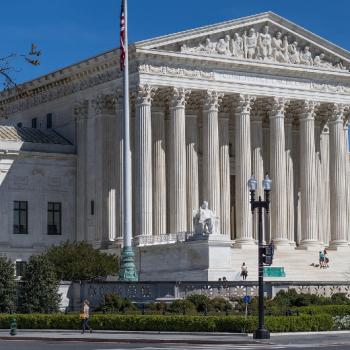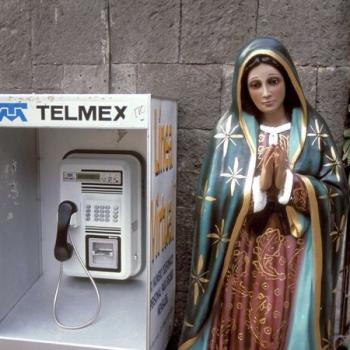If you can imagine saying at the end of your life, these are the values that still matter, you may find the spiritual values worth living for now. Far too many of us live our lives incrementally, driven by values and concerns that do not merit the investment that we make in them. That's not surprising. We all worship something and we all live by a code shaped by the things we worship. And there are times in life when we fail to reflect deeply on the things that have found their way to the center of our lives.
Last wills and testaments give us an opportunity to give something of ourselves to the things we value most. And deciding what those are now can be instructive. The Christian life, properly understood, is not a performance with a carrot or a stick at the far end of the experience. This life and the life to come are two parts of the same experience and they ought to be lived that way.
Four: Find a way to hold open the possibility of healing and forgiveness.
My students ask me from time to time if I believe in Purgatory. I do. Oh, not as a "place" per se and certainly not in the grim medieval categories that emphasize purgation to the point that all traces of love and hope are erased.
But I do believe that we all have homework left to do. And I do believe that if God works this hard to find us in this life, God won't give up on us in the next one. For that reason alone, we shouldn't give up on one another.
That's the problem with Maxwell E. Snavely's last will and testament. The people cited in his will are frozen in time, without a hope of healing and forgiveness. Some people certainly appear to belong in that category, but in God's way of seeing things, I think most of us are capable of more.
That is not to suggest that some of us will find ourselves at funerals where we have done all we can do in this lifetime to remain open and vulnerable to another human being. Nor is to say that when we die, there are not troubled relationships we will leave behind. There are times when there is little that we can do, other than to trust someone to God's grace and wisdom.
In the case of troubled, broken, dangerous, or toxic relationships, there are times when the only thing we can do is to say, "This was hurtful and you knew it, but I love you anyway. And may God keep you and give you peace."
Those final words may not be as satisfying as a parting shot, but they are words that prepare the way for healing.





